Streamers vs. stream-snipers: why cheaters will always prosper on Twitch
We asked developers, streamers, and the snipers themselves about the issue of stream-sniping. Here's what they told us.
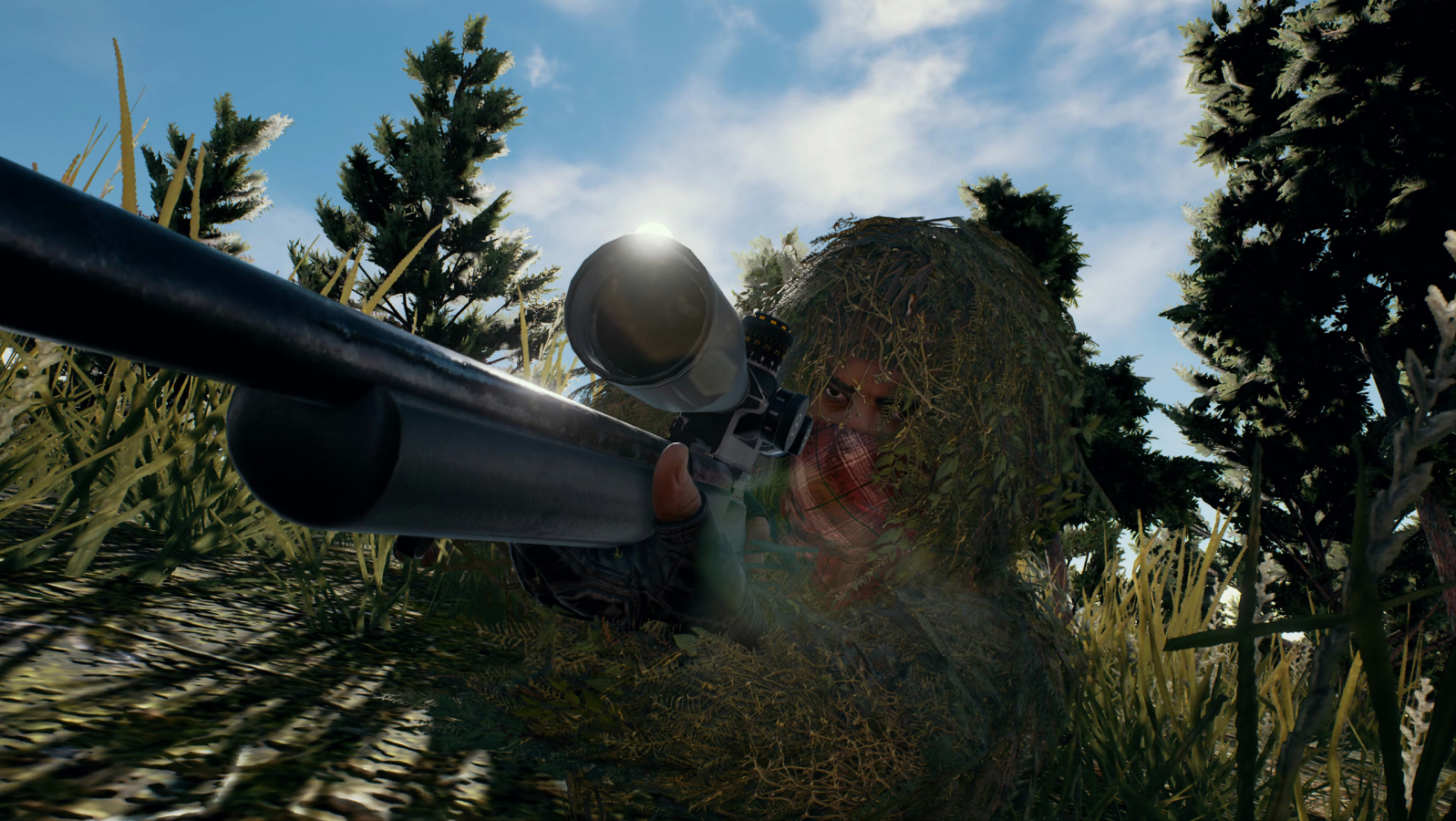
Stream-sniping—the practice of playing a game against a streamer while watching their broadcast to gain an advantage—is nothing new for those who play games on Twitch or other streaming services for large audiences. It's been getting a bit more attention recently due to some controversy in PlayerUnknown's Battlegrounds: a player was recently banned by Bluehole for stream-sniping in PUBG, despite the developer stating they didn't have real proof of the offense, just suspicion.
It's a conundrum: proving someone is stream-sniping is difficult—perhaps impossible—and banning players from a game without proof they have violated the rules is, in my opinion at least, a highly questionable and unfair policy. Some games, like Hearthstone, don't have set rules about stream-sniping, so it's debatable whether stream-sniping can even be considered cheating in the first place (though I'd definitely call it poor sportsmanship, like stealing signs in baseball). Meanwhile, streamers who are vocal about stream-sniping are often criticized for complaining or being paranoid. "Just stream with a delay!" is a common suggestion, but as we'll see below, that's not really a viable solution for streamers whose livelihoods depend on engaging in real-time with their audiences—and often doesn't even prevent stream-sniping anyway.
I reached out to a few developers, streamers, and stream-snipers to get their thoughts on how big an issue it is, the various motivations snipers have and the methods they use, how it can be detected or avoided, and how (if at all) snipers should be punished by developers. I heard back from Brian Hicks, creative director of DayZ (and avid streamer himself), Hearthstone pro Andrey "Reynad" Yanuk (who also plays PUBG, which has recently seen the rise of a new form of griefing—'stream-honking'), and Hearthstone streamer Octavian "Kripparrian" Morosan (Kripp) who recently discovered a sniper 'guild' had formed against him.
Kripp mailed me a link to his video, and his quotes in this article are taken from that. Other quotes are taken from emails and Twitter DMs, including from a number of snipers, current and former—many who now stream games themselves. In some cases the quotes have been lightly edited or rearranged for clarity.
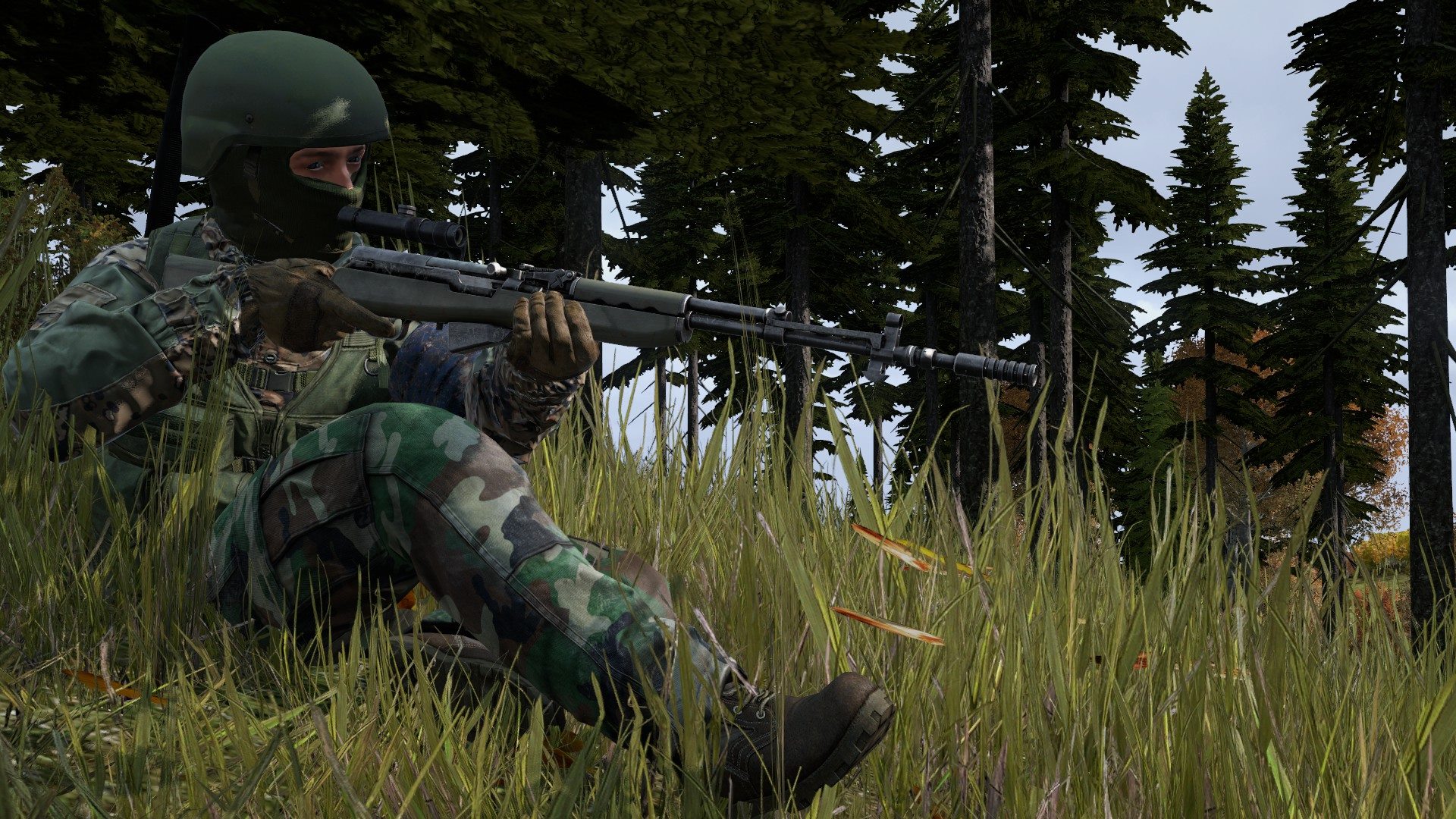
How big of an issue is stream-sniping?
Another sniper claims he stream-sniped one streamer so often the streamer gave up playing games on Twitch entirely.
"DayZ hands down has suffered from stream sniping as an issue all the way back to the earliest builds of the mod," says Brian Hicks, who says he's been dealing with it as a developer since 2012. Since much of DayZ's success is due to streamers and content creators broadcasting the game live (rather than through traditional marketing) Hicks says he has "run into obvious pressure to try and prevent it, and support said content creators in combating it."
"You can't really quantify how 'big' of an issue it is," Hearthstone streamer Reynad told me via Twitter. "That depends on the streamer and their goals in-game and as an entertainer. It is an incredibly frequent issue." For Reynad personally, he says in a video posted below, "It does happen. And it happens like a hundred times more than you'd expect."
"For a whale streamer, someone at literally 10K concurrents or higher, in a hundred-person game [of PUBG] at least 10 people [in the match] will be watching on stream, ballpark," Reynad says in his video.
Keep up to date with the most important stories and the best deals, as picked by the PC Gamer team.
StDxDougisRaw, pro H1Z1 player for team SetToDestroyX, says, "For me, streaming sniping doesn't happen on a regular [basis] so I'd go on a limb here and say half the time."
Popular streamers not only draw snipers, but can find themselves hounded by the same stream-snipers again and again. Current streamer and former stream-sniper KBubblez contacted me to say she used to target a particular well-known streamer "everytime he played H1Z1". Another sniper claims he stream-sniped one streamer so often the streamer gave up playing games on Twitch entirely.
"You have to keep in mind a few things," says Kripp about Hearthstone snipers. "I changed my username on Battle.net several times, even throughout [a long period of being stream-sniped], and I do often, not always, but almost every day I stream with a delay. Now the delay is fairly short, rarely do I have it over ten seconds, but if I have a five second delay one day and then the next day I have a twenty second delay, then you're just not going to be able to queue against me because you don't know when I'm queuing."
Even with those measures, Kripp has found the problem persists. "I have been experiencing, in the last few months, even with my efforts, playing against the same players every night in some cases. I remember throughout almost a full month, like a quarter of my losses were to the same person. Right? The same guy queuing against me like every day or every second day. Just absolutely ridiculous."
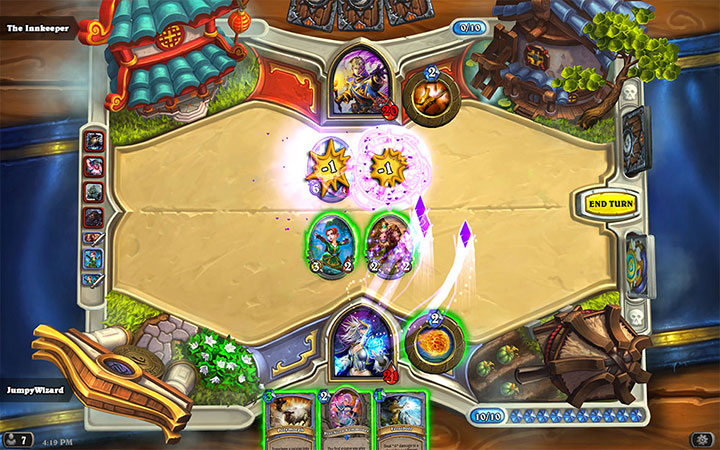
Why do snipers do it?
That's the trade off you get for being a streamer. If I was to offer my hand to my opponent in poker they would opt to see it every time.
"Chip", Hearthstone stream-sniper
I mainly assumed stream-sniping happened for attention or laughs, or out of some personal dislike for particular streamers, but the snipers I talked to gave me a number of different reasons.
One former sniper, now a streamer that I'll call 'Ray' for the purposes of anonymity, said he started sniping simply because he was bored. "I was an avid player of DayZ, and after about 3000-4000 hours of gameplay, I had been to every city, every corner of the map, found every item, and been in hundreds upon hundreds of shootouts." Ray was looking for a new way to entertain himself, so he "...turned to stream sniping because streamers in general tend to be entertainers, and I knew that interactions with them would probably be funny or interesting."
Typically, Ray says he didn't just hunt the streamers down to kill them, but to interact with them. "I would put on different accents and screw with them by picking nonsensical arguments or introducing myself as an annoyingly persistent hat salesman, or whatever other routine I had settled on for the day."
Not every sniper is out for laughs or fun. One Hearthstone sniper—I'll refer to him here as Chip—says that for him, stream-sniping is about one thing and one thing only: winning. Streamers, while making a living and entertaining their followers, are also voluntarily handing an opportunity to their opponents.
"Why is [it] up to me to say, well, I better not take this free advantage being offered to me?" asks Chip. "That's the trade off you get for being a streamer. If I was to offer my hand to my opponent in poker they would opt to see it every time."
"You take the trade of making 100 thousand dollars a year to someone seeing your cards in your hand," Chips says, in this case directly referring to Reynad's video (above) about stream-sniping. "Clearly the trade off is always going to be worth it to you. So why bitch about it in the first place?"
For many, though, stream-sniping is just another path to entertainment and fun. Says KBubblez: "I think it's funny when people are always going after them—it also shows how good [the streamers] actually are. But [I sniped] mostly for the reactions, it's very funny." In the next breath, however, she admits "Sniping in general can also be annoying though, it gets on your nerves when people are always coming after you, it makes it not fun and it's definitely not fair."
How stream-snipers operate
I could tell the time of day on the server by the position of the sun.
"Ray", former DayZ stream-sniper
The lengths snipers will go to to locate their targets is pretty staggering and, in some cases, quite impressive. Ray says he had an elaborate system for tracking down DayZ streamers, even after they'd begun taking preventative measures to hide the name of the server they were on, and even hide their Steam names.
"I could tell the time of day on the server by the position of the sun," says Ray. "I had every common server bookmarked, I could rapidly spot fake Steam profiles, and could look at their bio pages on Twitch to see what part of the world they lived in and know which regions their servers would be on. I even had an Excel spreadsheet with a list of the top 40 streamers for the game and which servers they frequented. This attention to detail allowed me to find them in minutes every time, no matter how much effort they put into hiding it."
"Often they will try and create identifying scenarios to ensure they are on the proper server," says Brian Hicks about DayZ stream-snipers. "Broadcast messages, fire off gunshots, or use VOIP to receive instant feedback on the stream that they are in fact on target."
In other games, streamers don't just use detective work but patience, setting up an ambush and lying in wait. "They play [Hearthstone] Arena all day until they get really good decks, and they wait until I get a deck that's weak to it, so if they get like a really good tempo Rogue, well, they'll wait until I play Priest that doesn't have much early game," Kripp says in his video. "And then on top of that they'll know my hand, they'll know my deck, they'll know all my answers, and I'm expected to actually do well against these people."
In Kripp's case, the lengths players are willing to go in order to stream-snipe him are extreme, to the degree that a 'sniper guild' had actually formed (which Kripp then, somewhat amusingly, infiltrated). The video above is fascinating and well-worth watching to understand how these Hearthstone snipers work and why Kripp playing with a delay didn't stop them.
"Of course sometimes you run into non-destructive forms of stream sniping (what used to affectionately be called stream stalking)," Brian Hicks says on the topic of those who don't necessarily want to beat the streamers but just play alongside them, or interact with them. "However unfortunately, that always ends up being the exception and not the rule. More often than not you encounter your average young kid, looking to ruin someone's fun or get their five seconds of fame. For the stream sniper this is a heart-pounding moment of excitement, watching on one monitor as they sneak closer and closer to the content creator—enabling themselves to have a direct impact on the stream, and feel powerful. It is incredibly frustrating, and demoralizing as a streamer. Hands down."
How can stream-sniping be combated?
...any streamer of any game will tell you the difference between playing on and off stream.
Andrey "Reynad" Yanuk
Detecting stream-snipers, not just as developers but as the streamers encountering them, can be nebulous. "As streamers, we've played games both on and off-stream for thousands of hours," Reynad says. "After that much time playing, any streamer of any game will tell you the difference between playing on and off stream. Sometimes it's something obvious a player does that gives away that he is sniping, other times it is a pattern of behavior across games from an individual. More often than not, and regardless of the game, a streamer will notice that something just feels 'off.' Something that is not in line with the game experience off-stream."
For instance, in Hearthstone, when the opposing player holds back a card that would be heavily punished by a card in the streamer's hand. That's not proof on its own, but if things like this happen far more often while streaming than while playing offline, it's natural to afford it a little suspicion. In other games, there are far more obvious signs.
"Watch a streamer queue up a game of agar.io and see how the server changes to nothing but Twitch emote characters hunting him," Reynad says.
Developers, too, have attempted to find ways to detect streamers beyond just letting players report them. "With DayZ Taviana (a mod I did with a small team prior to me joining Bohemia) our backend programmer slapped together several tools to allow us to monitor movement and behavior on a live server, but when you scale this up to something the size of DayZ or Battlegrounds the overhead becomes much more difficult," Brian Hicks says.
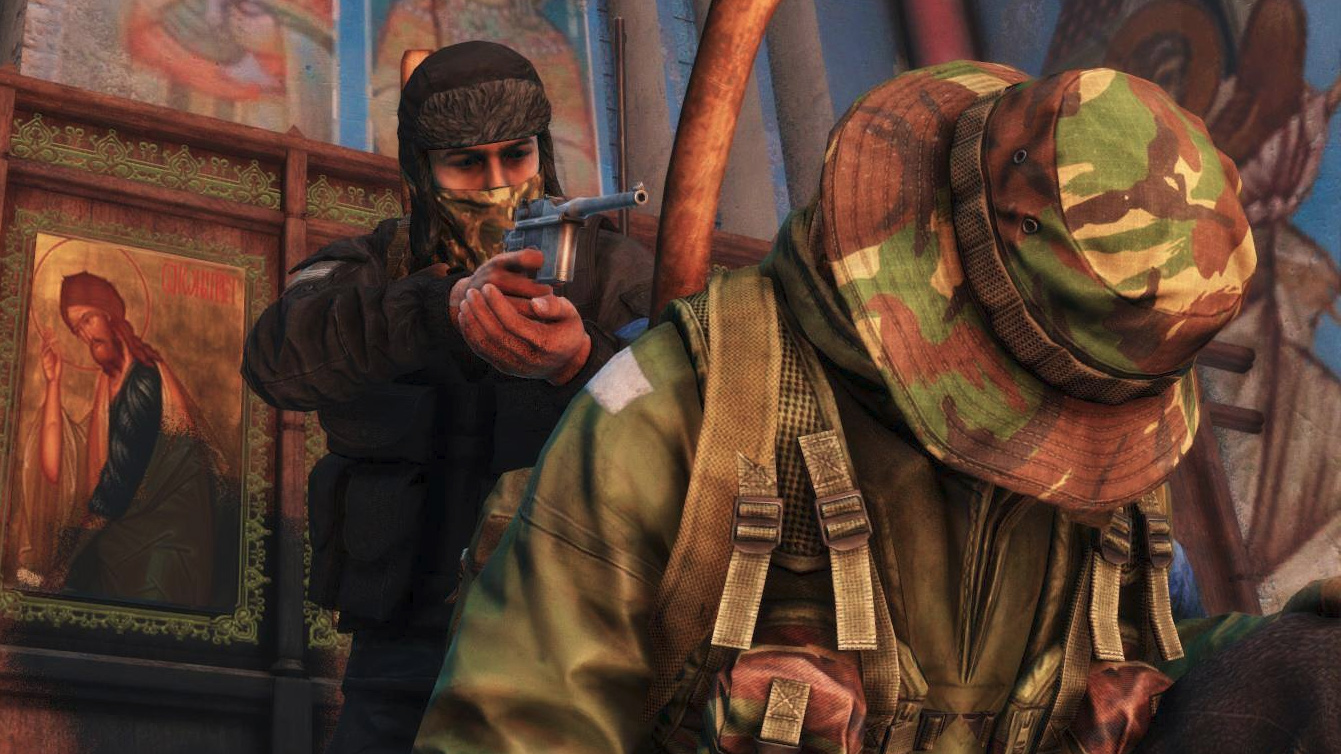
"Things like heatmaps help, but in the end—on a larger scale it's really down to user reporting. When dealing with user reports, you also run into the obvious methods of abuse and larger content creators having the audience (fully outside their control) that can tip the scale and make things clearly unfair.
"To the best of my knowledge," says Hicks," the only gains we have made in combating stream sniping have been in aiding content creators in removing identifying information on screen. Things such as UI elements, server messages, and player names."
Should stream-snipers be banned?
"While we understand we cannot prove that this player was watching the target stream's broadcast, we see no other reason why they would consistently attempt to be in the same lobby as someone who is broadcasting live other than to have an advantage in the game." That's a portion of Bluehole's statement on why they banned a player from PUBG after detecting them trying to join the lobby of a streamer.
I can personally think of a non-nefarious reason someone might want to locate a streamer's server: to simply play with them. I used to watch several DayZ streamers religiously and often considered trying to join the server they were on. Not to snipe them while watching their stream, but just because I enjoyed their broadcasts and I thought it would be fun to run into them in the game. I never did this, and I like to think that if I had, I would have turned off the stream once I'd joined the server they were on. And, if I had run across my favorite streamers in-game, would I have tried to kill them? Well, yeah. Part of the fun of playing with streamers, as KBubblez said, is finding out how good they really are. Someone who makes an effort to deliberately join a server that a streamer is on might not necessarily be watching the stream when they clash, and shouldn't, in my opinion, get banned for it. True proof of stream-sniping may be impossible to obtain, but bans simply shouldn't happen without it.
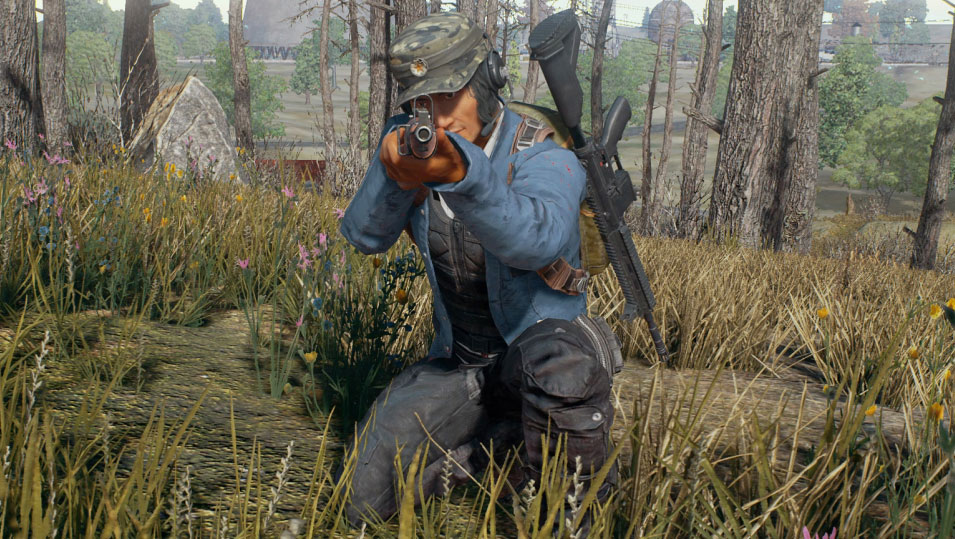
That kind of harassment isn't okay in person, and it isn't okay online.
"Ray"
Many of the people I talked to also said snipers shouldn't be banned (and even many streamers agree). "I don't think stream snipers should have any punishment," says KBubblez. "It's a game. If you're gonna broadcast yourself online and have a following, you have to understand that there are going to be trolls. Is it annoying—yes. But it makes for good entertainment."
Stream-sniper Chip doesn't feel that his sniping in Hearthstone is cheating in the first place, because Hearthstone doesn't have a specific rule against it. "Some games do have rules on third party programs, for example, League of Legends has a rule about no scripting. Using that program to directly affect how you play each game and giving yourself a huge advantage," he says. "That rule seems completely reasonable. Maybe something is to be said about how much of an advantage you get from these things, I don't know. It seems to me like unless it's directly [affecting] the way you yourself play, like scripts in League or aimbots in CS:GO, it should be completely fine to use."
Ray feels differently, provided developers can find proof of sniping. "If the developers have the tools to detect stream sniping and can enforce it, then it's healthy for the game to prevent that kind of cheating. Especially in competitive games where people are playing for rank, and also especially in repeat cases where one person is stalking and ruining games for a specific streamer. That kind of harassment isn't okay in person, and it isn't okay online. The people who defend this behavior truly puzzle me; it's not very different from going into someone's workplace and stalking them for hours on end."

Mike "StaX" Baxter, chief creative officer of SetToDestroyX, says "Permanent bans from chat would be an alright punishment, but nothing can really combat it. As long as you press 'Start Streaming' people will find a way into your channel." Meanwhile, Doug (also of SetToDestroyX) thinks progressive bans are the way to go, with more harsh bans if the sniper doesn't get the message. "In front of the other viewers who are watching and see the sniping happening with no consequence will just cause more of a problem. An example needs to be made."
Brian Hicks notes that punishment of stream-snipers just isn't viable without developers having proof and not just suspicion. "Personally, I've always wanted to be able to find a position where we can punish folks abusing the advantage of live streamed content (what I like to equate to the type of people who would screen peek during coop games in the 16-bit and later eras) however I have yet to find a position we can do this from, while retaining the moral high ground."
Reynad, frustrated as he might be about the issue, says: "I don't advocate banning players in these scenarios, because even as streamers we cannot be 100% sure it is happening."
It's clear stream-sniping is a problem, and one without any real solution. Developers can make changes to a game and invent tools to try to detect it, and streamers can hide server details, change their usernames, and even play with delays, but none of these measures seem particularly effective against the dedicated and resourceful stream-snipers (past and present) we've heard from. Banning players proven to be snipers might eventually dissuade some from the practice, but banning without concrete proof isn't fair, and that proof is nearly impossible to come by. For now, at least, stream-sniping will continue to be an issue, and streamers will have to keep looking over their shoulders for the people they know are watching.

Chris started playing PC games in the 1980s, started writing about them in the early 2000s, and (finally) started getting paid to write about them in the late 2000s. Following a few years as a regular freelancer, PC Gamer hired him in 2014, probably so he'd stop emailing them asking for more work. Chris has a love-hate relationship with survival games and an unhealthy fascination with the inner lives of NPCs. He's also a fan of offbeat simulation games, mods, and ignoring storylines in RPGs so he can make up his own.

